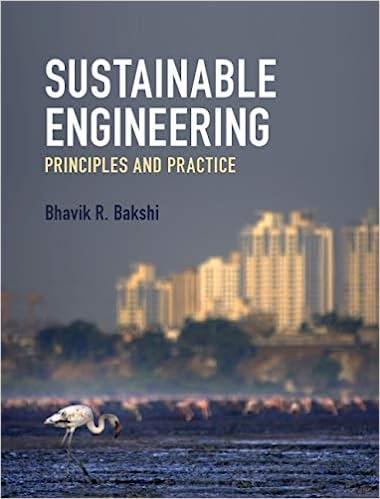Answered step by step
Verified Expert Solution
Question
1 Approved Answer
TRANSPORT PHENOMENA, PLEASE DO THE DRAWINGS BY HAND, i just need that Flow inside a pipeline. You are in a chemical plant working as a
TRANSPORT PHENOMENA, PLEASE DO THE DRAWINGS BY HAND, i just need that
Flow inside a pipeline. You are in a chemical plant working as a process engineer. The plant is dedicated to the production of a lowmolecular weight derivative from petroleum after refining and all of that Your first assignment is to analyze the effect of the viscosity of the liquid product in the pumping costs of the main pipe that sends the product from their production facility to their storage facility. The electricity, natural gas, and oil costs are getting expensive. So they want to save as much as possible, including in their pumping expenses. This section of the pipe is positioned perfectly horizontally between the two facilities goes underground For this, they give you about h to provide an initial approximation of how much the volumetric flow rate is affected by the dynamic viscosity of the fluid. The liquid product is known to behave as a Newtonian fluid. The pipe is always at a constant deg C At ambient conditions, the fluid can be considered incompressible. The pipe has an inner diameter Do and a length L The company runs this pipe continuously at steadystate and the fluid flow can be considered fully developed entrance effects neglected in this section The Reynolds number for this flow system is known to be lower than where the viscosity u is known to be constant and the friction force imposed by the pipe's inner wall is suspected to be giving flow rates different from the previously expected values.
a Draw a D and a D sketch of the system described in this problem could be from different angles
b Mark the following things on at least one of your sketches,
i what is the source, the medium and the sink?
ii position of your origin and names of your axes
iii. control volume and its limits based on your axes
ivwhat velocity vector component dominates according to your axes? This means in what direction is the motion mainly occurring.
v where do you think we have Vmax and Vmin?
vi what do you think is the direction of the steadystate momentum flux? Use a vector arrow to indicate the direction and label it with a viscous stress Tau Tij with its appropriate subindices according to your axes?
c Draw one microvolume for every term force term from the Equation of Motion that you need for these problems. For example, one to do a microbalance of the viscous forces with the components of the stress tensor that are appropriate according to your axes The end result must be a partial differential equation containing mechanical pressure and viscous stress terms for the system at steady state with no convective terms.
d Explain how you can use the conditions mentioned in the problem statement to cancel out some terms from your partial differential equation in order to make it solvable on paper within an hour. Explain the cancellation and write down the final ordinary differential equation that you plan to integrate to model this flow.
Step by Step Solution
There are 3 Steps involved in it
Step: 1

Get Instant Access to Expert-Tailored Solutions
See step-by-step solutions with expert insights and AI powered tools for academic success
Step: 2

Step: 3

Ace Your Homework with AI
Get the answers you need in no time with our AI-driven, step-by-step assistance
Get Started


